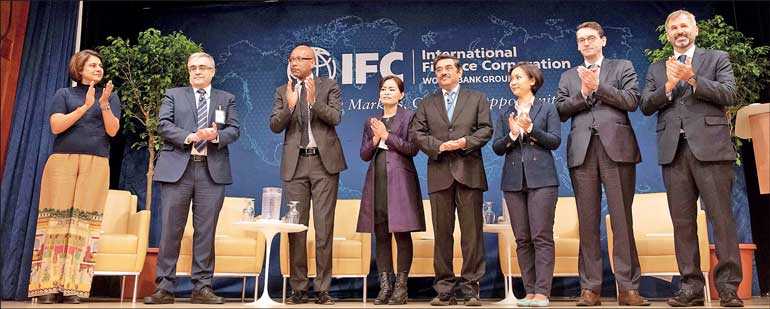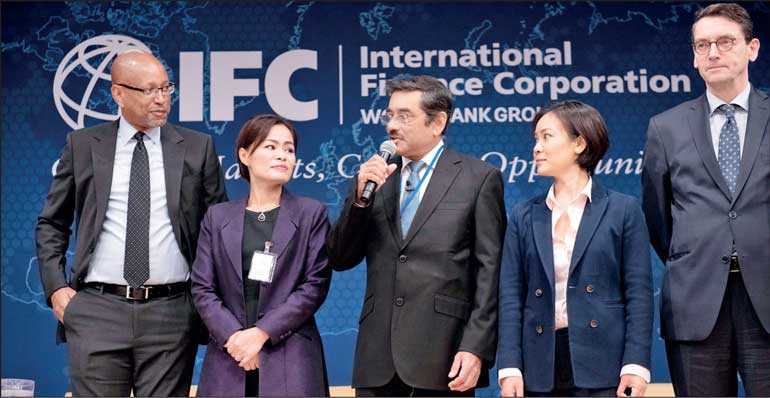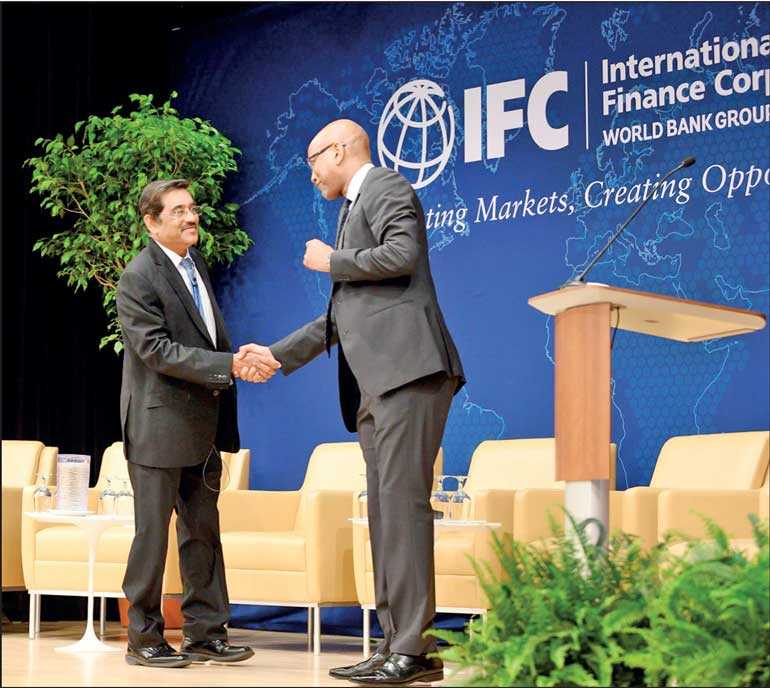Saturday Feb 21, 2026
Saturday Feb 21, 2026
Wednesday, 17 April 2019 00:00 - - {{hitsCtrl.values.hits}}



The Central Bank of Sri Lanka, with support from International Finance Corporation (IFC) and the United Nations Development Program (UNDP), has launched the Sustainable Finance Roadmap for the financial sector to increase capital flows to activities with a positive impact on the environment, society, and governance (ESG), and also manage the risks associated with these areas.
By providing policy guidelines and recommendations for responding to ESG risks and opportunities, the Roadmap aims to green the whole financial sector – banking, capital markets, and insurance – and help build a more resilient and sustainable economy. IFC, a member of the World Bank Group, serves as the Secretariat and technical advisor for the Roadmap, while the UNDP provides funding support through the Biodiversity Finance Initiative.
Although Sri Lanka accounts for less than 1% of global greenhouse gas emissions, the country is highly vulnerable to climatic fluctuations. Recurrent weather-related disasters, particularly over the past three years, have affected thousands of people and hampered the country’s economic growth. The Government of Sri Lanka has emphasised the need for sustainable development as part of its Sri Lanka 2030 Goal and Nationally-Determined Contribution under the Paris Agreement on Climate Change.
“Sustainability is one of the key focus areas of Sri Lanka’s economic policy. The government has attached a great deal of priority to sustainability, realising that we need to secure a green economy for our future generations,” said CBSL Governor Dr. Indrajit Coomaraswamy. “As the Central Bank, we have also placed a greater emphasis on sustainability especially considering it as a principle for the financial sector. Being the apex financial institution, we have taken this momentous step to introduce a roadmap for the financial sector to ensure that sustainability is considered in financial decisions. While this provides broad guidance to all key stakeholders of the financial system, we hope that all key players would adjust their plans and policies to accommodate the need for sustainable finance practices. I thank all stakeholders who partnered in this nationally important task.”
Speaking at the first Sri Lanka Sustainable Finance Workshop, hosted by CBSL and IFC in 2017, the President of Sri Lanka, Maithripala Sirisena, emphasised the significant role the financial system could play in achieving the United Nations’ sustainable development goals. He highlighted that the banking sector was an important partner for tackling crucial development challenges, including climate change, poverty, and equity.
Building on that consensus, IFC worked with CBSL in convening a dialogue with financial institutions and providing strategic and technical guidance to the sector on sustainable finance, including action plans. The roadmap referenced international best practice and leveraged collective experiences from 36 SBN member-countries from emerging markets.
“National roadmaps for the financial sector can help unlock financing for sustainable development. This roadmap will help Sri Lanka shift towards an inclusive, resilient, and low-carbon growth path,” said IFC Country Manager for Sri Lanka and Maldives Amena Arif. “We congratulate CBSL on its leadership and look forward to launching the National Financial Inclusion Strategy.”
Whether managing risk, creating business value by incorporating sustainable solutions, or identifying innovative ways to finance sustainability, the private sector is playing an indispensable role. IFC, as an investor and advisor in the private sector, works with financial institutions to introduce ESG standards and risk management in their lending practices to promote stability of financial systems in emerging markets.